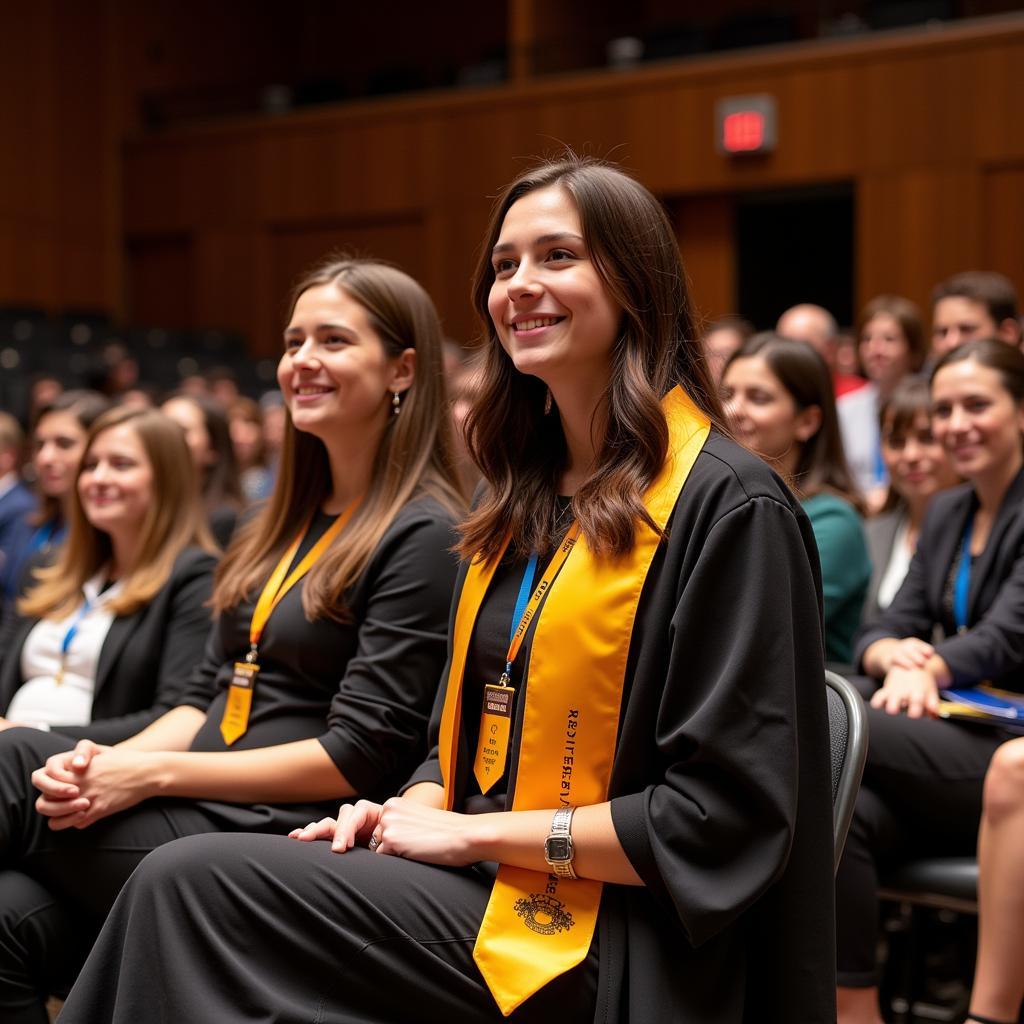The decision to join a Mathematics Honor Society can be a pivotal one for students passionate about numbers, logic, and problem-solving. This article delves into the multifaceted benefits of these societies, exploring how they provide a platform for intellectual growth, leadership development, and community engagement.
More Than Just Numbers: The Essence of a Mathematics Honor Society
Mathematics honor societies, often found at the high school and college levels, go beyond recognizing academic excellence. They foster a vibrant community of like-minded individuals who share a genuine love for the beauty and challenge of mathematics.
These societies create an environment where students can:
- Deepen their understanding: Engage in advanced mathematical discussions, workshops, and competitions that go beyond the standard curriculum.
- Develop critical thinking: Participate in problem-solving activities and research projects that enhance analytical and logical reasoning skills.
- Network with peers and mentors: Connect with fellow math enthusiasts, professors, and professionals in the field, opening doors to future opportunities.
- Give back to the community: Participate in outreach programs that promote math literacy and inspire younger generations to pursue STEM fields.
Choosing the Right Society: Navigating the Options
With numerous mathematics honor societies available, students might wonder which one aligns best with their aspirations. Some prominent organizations include:
- Mu Alpha Theta: A national high school and two-year college mathematics honor society with a rich history and a focus on scholarship, service, and the enjoyment of mathematics.
- Pi Mu Epsilon: A prestigious national mathematics honor society for four-year colleges and universities, recognizing outstanding mathematical achievement in undergraduate studies.
- Kappa Mu Epsilon: Another distinguished national mathematics honor society open to students and faculty at four-year colleges and universities, promoting the interest of mathematics among undergraduates.
 Induction Ceremony for New Members
Induction Ceremony for New Members
Each society has specific eligibility criteria, membership benefits, and areas of focus. Students are encouraged to research and compare different societies to identify the one that resonates most with their interests and goals.
Beyond the Accolades: The Lasting Impact
The benefits of joining a mathematics honor society extend far beyond graduation. Membership can enhance resumes, provide a competitive edge in college applications, and open doors to scholarships and internships.
More importantly, the skills honed and connections forged within these societies equip students with valuable tools for success in any field. The ability to think critically, solve problems creatively, and communicate complex ideas effectively are highly sought-after attributes in today’s rapidly evolving job market.
A Legacy of Excellence: Inspiring Future Mathematicians
Mathematics honor societies play a crucial role in nurturing the next generation of mathematicians, scientists, engineers, and innovators. By fostering a love for learning, encouraging collaboration, and providing opportunities for growth, these societies empower students to reach their full potential and make meaningful contributions to the world.
As we navigate an increasingly complex world, the need for skilled mathematicians and problem solvers continues to grow. Joining a mathematics honor society is not merely about recognition but about embracing a journey of intellectual discovery, personal growth, and making a lasting impact on the world.
 Students Leading a Math Workshop for Younger Children
Students Leading a Math Workshop for Younger Children
For students passionate about mathematics, joining an honor society is an investment in their future – one that promises not only personal fulfillment but also the opportunity to shape a brighter future for all.
Frequently Asked Questions
1. What are the typical eligibility requirements for mathematics honor societies?
Eligibility criteria vary, but generally include a minimum GPA in math courses, letters of recommendation, and sometimes an essay or interview.
2. Are mathematics honor societies only for students pursuing math-related careers?
No, many societies welcome students from diverse academic backgrounds who share a passion for mathematics. The skills gained are transferable to a wide range of professions.
3. How can I find out about mathematics honor societies at my school or university?
Contact your math department, guidance counselor, or search online for honor societies affiliated with your institution.
4. What are the time commitments associated with being a member of a mathematics honor society?
Time commitments vary, but typically involve attending meetings, participating in events, and potentially taking on leadership roles.
5. Can joining a mathematics honor society help me get into college?
Membership in an honor society can demonstrate academic excellence and commitment, which can strengthen your college applications.
6. Are there any scholarships available through mathematics honor societies?
Yes, many societies offer scholarships to eligible members based on academic achievement, leadership, and community service.
7. Can I join more than one mathematics honor society?
Yes, you can often join multiple societies as long as you meet their respective eligibility criteria.
For further assistance, please don’t hesitate to contact us.
Phone Number: 02043854663
Email: [email protected]
Address: Khu 34, Bắc Giang, 260000, Vietnam
Our dedicated customer support team is available 24/7 to address your queries and provide guidance. You can also explore our website for more insightful articles on national technical honor society benefits, national science honors society, and dwarkesh patel lunar society. We also have resources on the alpha epsilon delta pre health honor society and the level of recognition for national honor society.